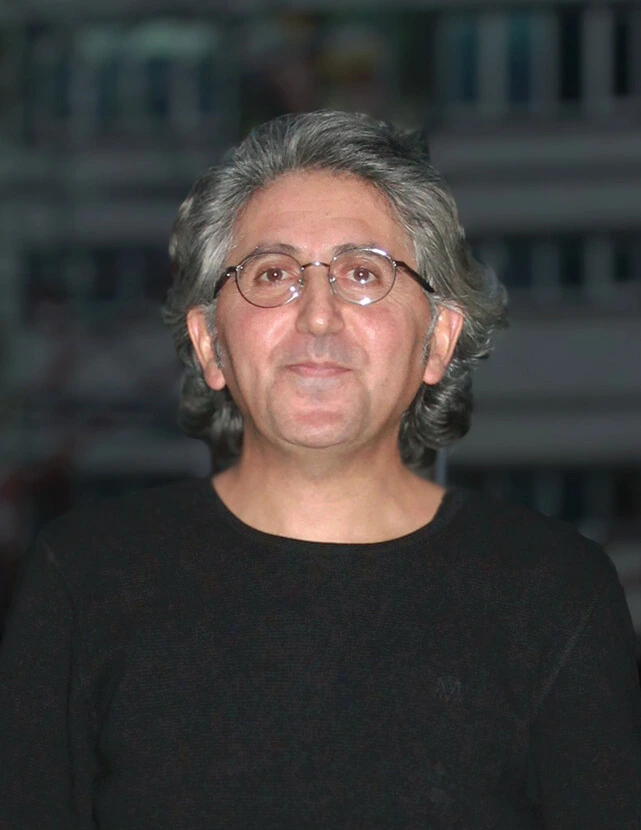Targeting the ‘Don’t Eat Me’ Signal: The Future of Macrophage Checkpoint Inhibitors


ONCOLife |
25 July 2025
Macrophage checkpoint inhibitors promise a transformative role in cancer immunotherapy; by targeting the “don’t eat me” signal CD24, they could address the shortcomings of T-cell therapies, enhancing both tumor specificity and safety. In this exclusive interview, Dr. Raphaël Rousseau, Chief Medical Officer of Pheast Therapeutics, discusses comprehensive early clinical data, innovative combination strategies, and crucial biomarker selection challenges in high-risk cancers, particularly ovarian and triple-negative breast cancer.
Click the picture to view the PDF version: Pg 32-36.
Could you start by providing an overview of the role macrophage checkpoint inhibitors play in cancer treatment and explaining the mechanism behind the “don’t eat me” signals?
Dr Rousseau: Immunotherapeutics have primarily focused on T cells, but T cells aren’t always ideal—they might not effectively penetrate the tumor microenvironment or may become inactivated. Although successful, these T-cell strategies have limitations. That’s why we’re focusing our attention on macrophages, essential players in innate immunity and frontline defenders.
Macrophages are abundant in virtually all tissues, effectively recognizing and consuming invading cells, including tumor cells. However, their activity is restrained by ‘don’t eat me’ signals expressed by healthy cells to avoid unwanted phagocytosis.
Cancer cells exploit this mechanism by significantly overexpressing these signals. One such signal was CD47, a well-characterized ‘don’t eat me’ signal that reached phase III trials, yet its expression on critical cells like red blood cells and platelets, narrows its therapeutic window and limits its therapeutic use.
More recently, research from Dr. Irv Weissman’s lab, specifically by Amira Barkal, identified CD24 as another crucial macrophage checkpoint. We’re now developing PHST001, a monoclonal antibody targeting CD24. Unlike CD47, CD24 displays substantially higher specificity for tumor cells, which could provide an improved therapeutic window.
I’m a pediatric hematologist-oncologist specialized in bone marrow transplantation and cellular therapies, and did my doctoral and postdoctoral work under Dr Malcolm Brenner at Baylor College of Medicine in Houston. Then I was a tenured professor of medical oncology and pediatrics at the University of Lyon. In 2009, I transitioned to industry at Roche Genentech, first in the hematology team focusing on drugs like rituximab, then leading a pediatric oncology development team until 2017, where we were able to deploy many innovative drugs in children with cancer. Afterwards, I served as Chief Medical Officer at Gritstone Bio and Neogene, and most recently at Day One Therapeutics, specializing in pediatric brain tumor therapies, before joining Pheast in January 2025.
Additionally, CD24 isn’t expressed on red cells or platelets, indicating a potentially better safety profile.We’ve now initiated clinical trials using this monoclonal antibody against CD24 to evaluate this promising approach across various tumor types, offering new hope for improved cancer immunotherapy.
What specifically differentiates PHST-001 from other macrophage checkpoint inhibitors currently in preclinical or clinical development?
Dr Rousseau: PHST001 was specifically designed to engage CD24 with high affinity and specificity, while minimizing unintended activation of macrophages. One of the key challenges in targeting CD24 is that it is a heavily glycosylated protein. This glycosylation plays a critical role in its interaction with Siglec-10, and the diversity of glycoforms can complicate antibody targeting.
Our antibody, PHST001, was engineered to bind across the full range of known glycoforms of CD24. We believe this broad coverage allows for more complete and consistent blockade of the CD24/Siglec-10 interaction across tumor types, even where glycosylation patterns may vary.
Additionally, PHST001 incorporates an IgG4 backbone—rather than a more activating IgG1—isotype—helping to gently engage macrophages without triggering excessive immune activation. This approach may contribute to a more favorable safety profile by avoiding off-tumor effects, while still allowing for therapeutic activity against CD24-expressing cancer cells.
How might PHST001 impact the standard treatment landscape for ovarian and triple-negative breast cancer (TNBC), especially in cases refractory to existing immunotherapies?
Dr Rousseau: PHST001 might induce clinical responses as monotherapy, which we’ll evaluate during our phase one dose escalation and cohort expansion studies. However, we expect greater benefit when combining PHST001 with conventional chemotherapy or radiation therapy, treatments known to cause tumor cell damage and increase their susceptibility to macrophage attack. By blocking the CD24 ‘don’t eat me’ signal, PHST001 helps macrophages identify and destroy damaged tumor cells more effectively.
Advanced, relapsed, or refractory tumors, particularly triple-negative breast cancer, ovarian, and endometrial cancers, significantly overexpress CD24. Notably, many of these tumors show gene amplification of CD24, making them highly susceptible to PHST001. Our hypothesis is that PHST001, especially in combination with standard therapies, will notably improve patient responses in these CD24-amplified cancers.
The data presented at SITC 2024 showed PHST001 does not induce cytokine release in vitro. Could you elaborate on the implications of this finding for clinical safety?
Dr Rousseau: IWhen engaging the immune system, achieving the right balance between efficacy and safety is crucial. One significant safety concern in immune therapies, particularly those involving T-cells, is cytokine release syndrome, where immune effectors release cytokines such as IL-6, causing adverse effects like cardiovascular leaking syndrome. To address this, PHST001 was specifically developed using an IgG4 immunoglobulin backbone rather than an IgG1 backbone, making it gentler on immune activation.
Our preclinical data, aligned with other IgG4-based antibodies, confirm that PHST001 does not induce cytokine release in tumor models. Thus, our hypothesis is that PHST001, by gently blocking CD24 without excessively activating the immune system, could significantly improve the therapeutic window, offering greater efficacy with fewer risks of immune-related adverse effects.
Given the known limitations of anti-CD47 therapies, how might PHST001 be used in combination therapies to overcome resistance mechanisms in solid tumors?
Dr Rousseau: CD47 is broadly expressed on many cell types, both normal and tumor cells, but at lower density compared to CD24. CD24 exhibits a notably higher expression on tumor cells with a much wider ratio compared to normal tissues, and importantly, is not expressed on red blood cells or platelets, thus avoiding the anemia and thrombocytopenia limitations associated with CD47-targeting therapies. This positions CD24 blockade as potentially offering a superior therapeutic window, especially beneficial in resistant or refractory cancers.
Additionally, CD24 expression often increases during tumor progression and metastasis in certain cancers. Therefore, blocking CD24 and activating macrophages, particularly in combination with chemotherapy, radiation therapy, or other immune checkpoints, could effectively halt disease progression—either in maintenance, adjuvant settings, or advanced disease stages—providing a critical tool against metastatic spread.
In your view, what are the major remaining hurdles in translating macrophage checkpoint inhibitors from preclinical models to effective clinical therapies?
Dr Rousseau: One of the key hurdles we’re addressing is whether we’ll need a biomarker to select patients. CD24 is expressed across many tumor types at varying levels, so we’re exploring if there’s a correlation between CD24 expression and treatment response. In our phase one trial, we’re enrolling patients with a range of tumor types—those who’ve exhausted other therapies—and we’ll assess CD24 expression on their tumors.
This will allow us to retrospectively evaluate whether there’s a link between expression levels and clinical or biological responses. It’s possible that CD24 expression won’t be a decisive variable, and we could treat all-comers. But it’s also possible, as seen with other checkpoints, that there’s a threshold of expression necessary for efficacy. Determining this will be central to our phase one and two programs.
How do you envision the future of macrophage checkpoint therapies in precision immuno-oncology, particularly for indications with high unmet medical needs?
Dr Rousseau: In our phase one study, we are focusing on patients with advanced, relapsed, or refractory disease to evaluate responses both as monotherapy and in combination with other treatments. If we observe positive responses, we plan to expand patient cohorts within those specific advanced tumor types.
Additionally, we’re considering patients with high-risk localized disease who, despite tumor resection, remain at significant relapse risk—such as women with triple-negative breast cancer showing high-risk features post-surgery, like circulating tumor DNA. For these cases, we might administer PHST001 in the adjuvant setting to prevent recurrence. Ultimately, our phase one and two trials will determine if PHST001 should be applied in advanced disease settings or as a preventive measure in high-risk patients post-resection.











Comments
No Comments Yet!